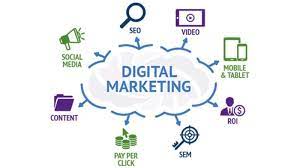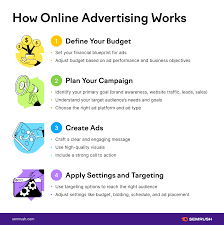The Role of Content Marketing in Digital Marketing
Content marketing is a crucial component of any successful digital marketing strategy. In today’s digital age, where consumers are constantly bombarded with advertisements and information, it is essential for businesses to create valuable and engaging content that resonates with their target audience.
Content marketing involves creating and distributing relevant and valuable content to attract, engage, and retain a specific audience. This can take various forms, including blog posts, social media updates, videos, infographics, ebooks, and more. The key is to provide content that educates, entertains, or inspires your audience while subtly promoting your products or services.
Benefits of Content Marketing in Digital Marketing
There are several benefits to incorporating content marketing into your overall digital marketing strategy:
- Increased brand awareness: By consistently producing high-quality content that showcases your expertise and values, you can increase brand visibility and recognition among your target audience.
- Improved search engine rankings: Search engines like Google value fresh and relevant content. By regularly updating your website with valuable content, you can improve your search engine rankings and attract more organic traffic.
- Enhanced customer engagement: Engaging content helps build relationships with your audience. By providing valuable information and addressing their needs through your content, you can foster trust and loyalty among customers.
- Increased lead generation: Content marketing can be an effective lead generation tool. By creating compelling content that addresses common pain points or questions within your industry, you can attract potential customers who are actively seeking solutions.
- Cost-effective marketing strategy: Compared to traditional advertising methods, content marketing is relatively cost-effective. With a well-planned content strategy, businesses can reach a wider audience without breaking the bank.
Tips for Effective Content Marketing
To make the most of your content marketing efforts, consider the following tips:
- Understand your target audience: Tailor your content to address the specific needs and interests of your target demographic.
- Create high-quality content: Focus on producing valuable and engaging content that provides real value to your audience.
- Promote your content: Utilise various channels such as social media, email newsletters, and SEO to promote your content and reach a wider audience.
- Analyse performance: Monitor the performance of your content using analytics tools to identify what works best for your audience and adjust your strategy accordingly.
In conclusion, content marketing plays a vital role in digital marketing by helping businesses connect with their target audience on a deeper level. By creating valuable and engaging content that resonates with consumers’ needs and interests, businesses can build brand awareness, drive traffic to their websites, generate leads, and ultimately boost sales.
Understanding Content Marketing: Key Questions and Insights for Digital Success
- What is content marketing and how does it fit into digital marketing?
- Why is content marketing important for businesses in the digital age?
- How can businesses measure the effectiveness of their content marketing efforts?
- What are some key elements of a successful content marketing strategy?
- How does content marketing help businesses improve their online visibility and attract customers?
What is content marketing and how does it fit into digital marketing?
Content marketing is a strategic approach that involves creating and distributing valuable, relevant content to attract and engage a specific target audience. It plays a crucial role in digital marketing by serving as the foundation for building relationships with consumers and driving profitable customer action. Content marketing fits into digital marketing by providing businesses with a means to connect with their audience on a deeper level, establish credibility and authority in their industry, improve search engine rankings, generate leads, and ultimately drive conversions. By creating compelling content that addresses the needs and interests of their target audience, businesses can effectively communicate their brand message and differentiate themselves in the competitive digital landscape.
Why is content marketing important for businesses in the digital age?
In the digital age, content marketing is essential for businesses to stay relevant and competitive in a crowded online landscape. With consumers increasingly turning to the internet for information and solutions, businesses need to create valuable and engaging content that captures their attention and builds trust. Content marketing allows businesses to showcase their expertise, establish thought leadership, and connect with their target audience on a deeper level. By providing informative and entertaining content, businesses can attract and retain customers, drive traffic to their websites, improve search engine rankings, and ultimately increase conversions. In a world where traditional advertising methods are becoming less effective, content marketing offers a cost-effective way for businesses to reach and engage with their audience in meaningful ways.
How can businesses measure the effectiveness of their content marketing efforts?
One frequently asked question in the realm of content marketing in digital marketing is: “How can businesses measure the effectiveness of their content marketing efforts?” Businesses can gauge the success of their content marketing campaigns through various metrics and key performance indicators (KPIs). These may include website traffic, engagement rates, conversion rates, lead generation, social media shares, email open rates, and more. By tracking and analysing these metrics over time, businesses can gain valuable insights into the impact of their content marketing strategies and make data-driven decisions to optimise their campaigns for better results. Effective measurement allows businesses to understand what resonates with their audience, identify areas for improvement, and ultimately maximise the return on investment from their content marketing efforts.
What are some key elements of a successful content marketing strategy?
When it comes to crafting a successful content marketing strategy in the realm of digital marketing, several key elements play a crucial role in achieving desired outcomes. Firstly, understanding your target audience and their preferences is essential for creating content that resonates with them. Consistent and high-quality content production is another vital element, ensuring that your audience receives valuable information regularly. Effective distribution channels, such as social media, email newsletters, and SEO, help amplify the reach of your content. Additionally, measuring and analysing the performance of your content through analytics tools allows for data-driven decision-making and continuous improvement. By incorporating these key elements into your content marketing strategy, you can enhance engagement, build brand awareness, and drive successful outcomes in the digital landscape.
How does content marketing help businesses improve their online visibility and attract customers?
Content marketing plays a crucial role in helping businesses enhance their online visibility and attract customers in the digital landscape. By consistently creating and sharing valuable content that is relevant to their target audience, businesses can establish themselves as industry experts and thought leaders. This not only increases brand awareness but also improves search engine rankings, making it easier for potential customers to discover their products or services online. Engaging and informative content can attract and retain the attention of consumers, driving traffic to the business’s website and social media platforms. Ultimately, content marketing serves as a powerful tool for businesses to connect with their audience, build trust, and drive customer engagement in the competitive digital marketing space.




